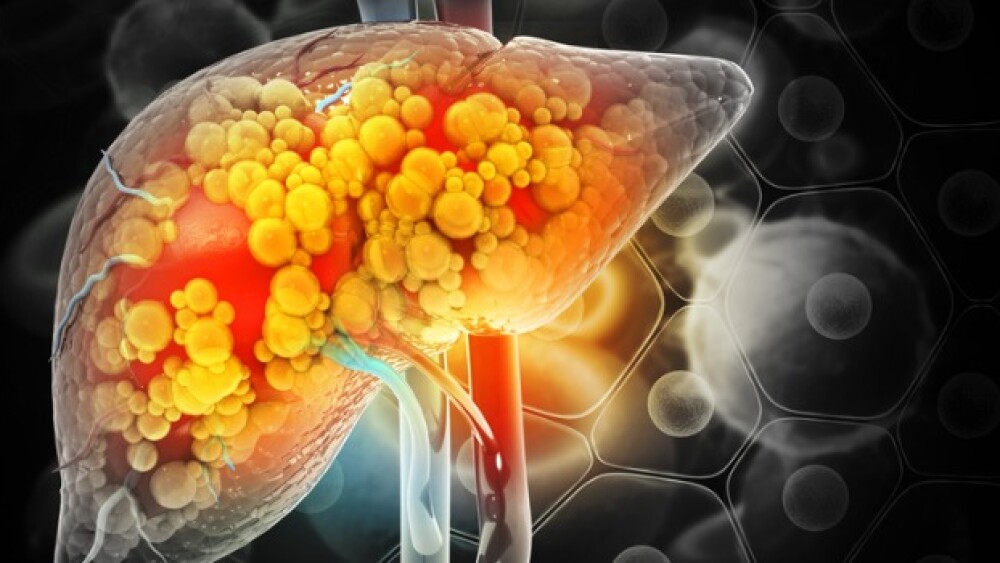New 96-week data show Akero Therapeutics’ efruxifermin can improve fibrosis by at least one stage without metabolic dysfunction-associated steatohepatitis worsening in more patients versus placebo.
Pictured: Illustration depicting a damaged liver/iStock, Mohammed Haneefa Nizamudeen
Akero Therapeutics on Monday released preliminary 96-week data from the Phase IIb HARMONY study, showing that its investigational FGF21 analog efruxifermin leads to significant fibrosis improvement in patients with metabolic dysfunction-associated steatohepatitis.
At 96 weeks, 75% of patients treated with the 50-mg dose of efruxifermin saw at least one stage of improvement in fibrosis without worsening of metabolic dysfunction-associated steatohepatitis (MASH). By comparison, only 24% of placebo counterparts achieved the endpoint. The treatment difference was statistically significant with a p-value less than 0.001, according to Akero’s announcement.
Akero reported a similar benefit for the 28-mg dose of efruxifermin, which induced fibrosis improvement by at least one stage in 46% of patients. However, this effect was not statistically significant versus placebo.
Efruxifermin also met a key secondary histology endpoint of HARMONY—36% and 31% of patients, respectively, who received the 50-mg and 28-mg doses of efruxifermin saw fibrosis improvement by at least two stages. Not only was this effect significantly superior but it was also “more than 10-fold the placebo rate of 3%,” Akero noted in its announcement.
This particular finding—that efruxifermin (EFX) can elicit a two-stage improvement in fibrosis in approximately a third of treated patients—“sets EFX apart,” CEO Andrew Cheng said in a statement.
“Today’s results show that longer exposure to EFX has the potential to yield sustained fibrosis improvement as well as widening anti-fibrotic treatment responses across the treated patient populations,” Cheng said, adding that the company will continue to assess efruxifermin in its Phase III SYNCHRONY program.
Akero had previously released 24-week data from HARMONY. In a September 2022 readout, efruxifermin’s 28-mg and 50-mg doses elicited a one-stage fibrosis improvement without disease worsening in 39% and 41% of treated patients, respectively, at 24 weeks. At the time, the placebo rate was 20%.
Monday’s data drop also looked at how efruxifermin’s effects changed from 24 weeks to 96 weeks and found that at the 50-mg dose level, its placebo-adjusted effect size on fibrosis improvement without MASH deterioration more than doubled in the intervening period, jumping from 21% to 52%.
Comparing its 24-week and 96-week performance suggested that not only can efruxifermin elicit broad improvements in fibrosis without worsening of MASH, but also that its benefits are durable especially at the 50-mg dose level, Akero noted in its announcement.
Monday’s readout will help Akero rebound from a mid-stage flop. In October 2023, the company reported that efruxifermin failed the Phase IIb SYMMETRY study, which showed that both the 28-mg and 50-mg dose levels could not significantly outperform placebo at improving fibrosis by at least one stage without worsening MASH.
Tristan Manalac is an independent science writer based in Metro Manila, Philippines. Reach out to him on LinkedIn or email him at tristan@tristanmanalac.com or tristan.manalac@biospace.com.






